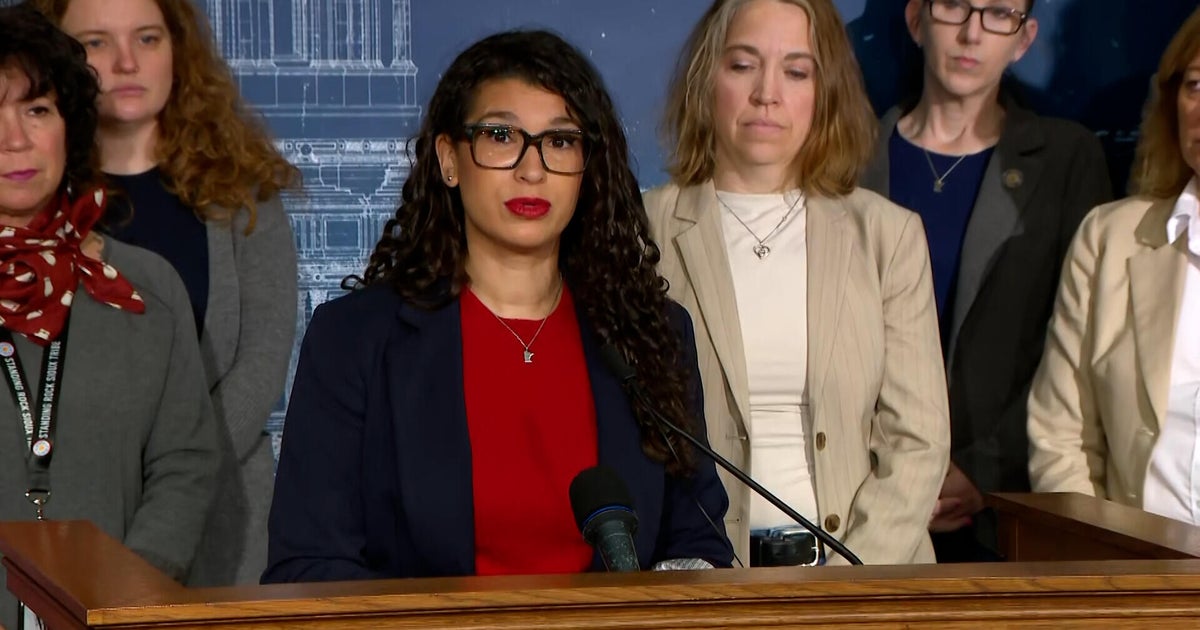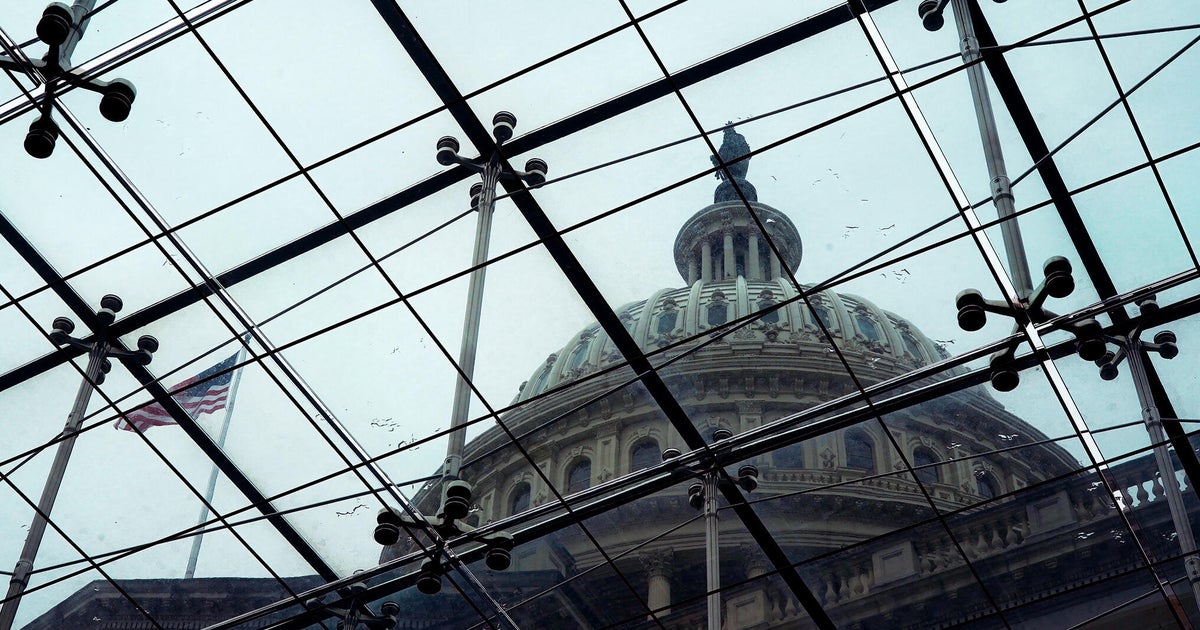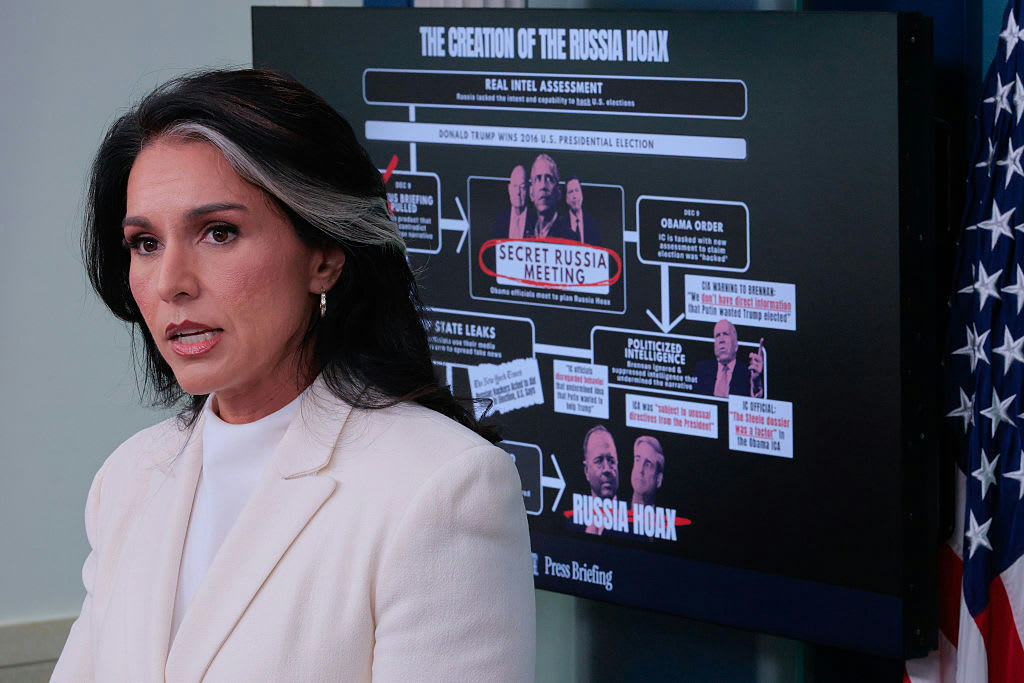Transcript: Former DHS Secretary Jeh Johnson on "Face the Nation," April 29, 2018
Republicans on the House Intelligence Committee released a report Friday on Russian meddling in the 2016 campaign, concluding that there was "no evidence" of collusion between the Trump campaign and the Russian government. Democrats immediately panned the report and issued their own document criticizing the committee's investigation.
Jeh Johnson served as secretary of homeland security during the Obama administration, including during the campaign. He joined us to discuss Russian efforts to impact U.S. politics, actions he took as secretary and more.
The following is a transcript of the interview with Johnson that aired Sunday, April 29, 2018, on "Face the Nation."
MARGARET BRENNAN: We're joined now by President Obama's Homeland Security Secretary Jeh Johnson who is now a private citizen coming back here to Washington to talk to us.
JEH JOHNSON: Thanks for having me Margaret.
BRENNAN: Good to have you on the show. I want to pick up where we were talking with Trey Gowdy about this House Intelligence Committee investigation into Russian interference and collusion with the Trump campaign. You were at the helm at Homeland Security when all of this was happening. In the report, DHS is faulted for not designating election systems as critical infrastructure until January 6, 2017. Why did you wait until two months after the presidential election to do that?
JOHNSON: Well, first I think it's unfortunate that the committee's report was basically Republican only. There was not a bipartisan consensus, and for the committee that oversees our own intelligence community that's really unfortunate, and I think Trey would agree with that. You're correct, I designated election infrastructure to be critical infrastructure on January 6, 2017 just as we were leaving office. I had raised the idea with state election officials in August 2016 and there was a lot of misapprehension about what that would mean. They thought it would mean a federal takeover binding operational directives. And I told them it was not, it was something that was voluntary in nature if the states seek our assistance.
But the priority then was to basically bring the horses to water and to encourage the states to come in and seek our assistance. So we put the issue of critical infrastructure aside which was becoming a hot button issue and in the end we did get 36 states to come in and seek DHS's cyber security assistance. Then after the election I came back to the issue and designated election infrastructure critical infrastructure. I'm glad I did it. We should have done it years before and I'm pleased that Secretary Kelly after I left and he came out basically reaffirmed that designation.
BRENNAN: Well there's a lot to dig into here in terms of whether we are prepared now and actions that were taken but we have to take a quick break. So stay with us and we'll be right back. More with former Homeland Security Secretary Jeh Johnson.
(COMMERCIAL BREAK)
BRENNAN: Welcome back to "Face the Nation." I'm Margaret Brennan. We continue our conversation with Obama administration Homeland Security Secretary Jeh Johnson. Jeh, let's pick up where we were talking about this House Intelligence Committee report into alleged collusion and Russian meddling--
JOHNSON:Yes.
BRENNAN: -in 2016. In the report which you've acknowledged you wish it weren't just a Republican paper because it is so serious. But the conclusion is that the intelligence community should immediately inform presidential candidates when they discover a legitimate counterintelligence threat to the campaign and notify Congress. And they fault the administration for not doing that when you were in office.
JOHNSON: Well I think that's a legitimate recommendation. Anytime a campaign is the target of a hack, a cyber hack, the campaign itself should be aware of that so take proper action.
BRENNAN: Why weren't they? Why wasn't the Trump campaign?
JOHNSON: Well I believe that it's the case that at various points along the way, the right people were informed certainly the DNC was informed of what we saw and what we were seeing at the time the FBI and eventually DHS was working with the DNC. But I agree that there should be a more methodical way of doing this. And this was not the first time by the way in 2016 that a campaign had been infiltrated in some way by a cyber attack and typically law enforcement and DHS will work with the campaign to make sure they take corrective action. You'd have to ask the FBI about the relationship with the interaction with the Trump campaign. But I don't argue with the recommendation.
BRENNAN: You've testified publicly that when the administration did decide to make public the evidence they had of Russian interference attempts October 2016 one month before the election --
JOHNSON: October 7, 2016. Yes.
BRENNAN: You fault the media for not paying enough attention to it --
JOHNSON: Correct.
BRENNAN: --because of the Access Hollywood report coming out at the same time. But doesn't the administration bear some responsibility for not detailing it more doing more background and sharing more information with reporters?
JOHNSON: Well actually the House Intel report I think does a decent job of laying out all the different considerations that went into that attribution. And we had to declassify a lot of very sensitive intelligence to get to that. And anytime you do that you have to be concerned about compromising sources and means. And so we said as much as we could say at the time without seriously jeopardizing our sources and means and the statement itself was pretty blunt and pretty straightforward by saying that at the highest levels of the Russian government there was an attempt to interfere with the ongoing political campaign. A number of us thought it was very very important that we tell the American voters what was going on at the time before the election and then after the election we came back in much greater detail to tell the American public exactly what happened.
BRENNAN: You wish that alarm bell had been a little louder?
JOHNSON: I wish that the alarm bell had been heard by more people as you point out the Access Hollywood video was released the same day, and the speculation over the next several days was whether or not candidate Trump was going to drop out. And our statement was literally below the fold news that day.
BRENNAN: I want to ask you as well about James Comey your former colleague former FBI director. His new book he writes about you in it and a phone call you made to him telling him to be quote "very careful" when he briefed President elect Trump about the so-called Steele dossier.
JOHNSON: Right.
BRENNAN: What were you thinking. Why were you telling him to be careful?
JOHNSON: Well first Jim has been a friend for almost 30 years. From the days we were federal prosecutors together and it's actually the case in Washington that when you're in a very senior position like FBI director or secretary of Homeland Security it's a lonely place and very few people north of you or south of you are sitting right next to you are going to take the time to warn you if they think that you're about to do something that is treacherous perhaps a mistake.
BRENNAN: Did you think it was a mistake?
JOHNSON: I was very concerned when I heard the plan for the director of the FBI to one on one brief Mr. Trump about this dossier. Jim and I had discussed over time the Hoover era history of the FBI. My own grandfather, and Jim knows this, who was a sociologist, has an FBI file of several hundred pages. So Jim and I talked about the history of the FBI and he and I literally - literally finished my sentence when I said there's a fine distinction Jim, between telling somebody just so you know and telling somebody just so you know and don't mess with us. And I was concerned that the president elect was going to hear the latter and not the former message and Jim understood that, and I think he did his best.
BRENNAN: Would you have done the same thing if you were in Comey's position?
JOHNSON: That's a good question. I was not in the FBI director's position but I was concerned about what he was about to do and felt as a friend that I should talk to him because I had met Mr. Trump during the campaign and during the transition.
BRENNAN: And you advised otherwise. All right. Well, Jeh thank you very much for coming on.
JOHNSON: Pleasure to be on.
BRENNAN: We'll be right back with our political panel so don't go away.



